Risk Shifting in Financial Markets and Sustainable Finance
Do financial institutions facilitate sustainable finance? This research group studies lenders' risk shifting incentives, their choices in supporting sustainable business, and how sustainable finance and legal innovations affect firms and households.
Research Cluster
Financial Resilience and RegulationYour contact

Mitglied - Department Financial Markets
Refereed Publications

To Securitize or To Price Credit Risk?
in: Journal of Financial and Quantitative Analysis, forthcoming
Abstract
Do lenders securitize or price loans in response to credit risk? Exploiting exogenous variation in regional credit risk due to foreclosure law differences along US state borders, we find that lenders securitize mortgages that are eligible for sale to the Government Sponsored Enterprises (GSEs) rather than price regional credit risk. For non-GSE-eligible mortgages with no GSE buyback provision, lenders increase interest rates as they are unable to shift credit risk to loan purchasers. The results inform the debate surrounding the GSEs' buyback provisions, the constant interest rate policy, and show that underpricing regional credit risk increases the GSEs' debt holdings.

Gender Pay Gap in American CFOs: Theory and Evidence
in: Journal of Corporate Finance, June 2023
Abstract
Studies document persistent unexplained gender-based wage gap in labor markets. At the executive level, where skill and education are similar, career interruptions and differences in risk preferences primarily explain the extant gender-based pay gap. This study focuses on CFO compensation contracts of Execucomp firms (1992–2020) and finds no gender-based pay gap. This paper offers several explanations for this phenomenon, such as novel evidence on the risk preferences of females with financial expertise and changes in the social and regulatory climate.

The Effect of Bank Failures on Small Business Loans and Income Inequality
in: Journal of Banking and Finance, January 2023
Abstract
Using variation in the timing and location of branches of failed banks we analyze its effect on income inequality. Employing a difference-in-differences specification we find that bank failures increased the GINI by 0.3 units (or 0.7%). We show that the rise in inequality is due to a decrease in the incomes of the poor that outpaces declines of the rest. We further show that individuals with lower levels of education exhibit a relatively greater decline in real wages and weekly hours worked. Exploring channels of transmission, we find income inequality is explained by a general decline in small business loans. This in turn reduces net new small business formation and their job creation capacity, a sector that hires a substantial share of low-income earners.
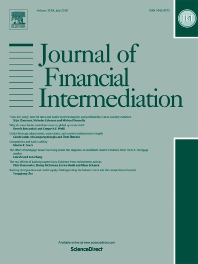
Explicit Deposit Insurance Design: International Effects on Bank Lending during the Global Financial Crisis
in: Journal of Financial Intermediation, July 2022
Abstract
Studies find that during the 2007–2009 global financial crisis, loan spreads rose and corporate lending tightened, especially for foreign borrowers (a flight-home effect). We find that banks in countries with explicit deposit insurance (DI) made smaller reductions in total lending and foreign lending, experienced smaller increases in loan spreads, and had quicker post-crisis recoveries. These effects are more pronounced for banks heavily relying on deposit funding. Evidence also reveals that more generous or credible DI design is associated with a stronger stabilization effect on bank lending during the crisis, confirmed by the difference-in-differences analysis based on expansion of DI coverage during the crisis. The stabilization effect is robust to the use of country-specific crisis measures and control of temporary government guarantees.
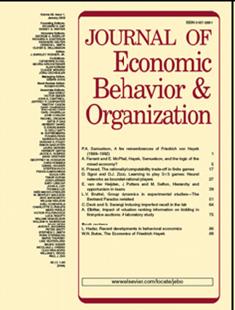
The Impact of Overconfident Customers on Supplier Firm Risks
in: Journal of Economic Behavior and Organization, May 2022
Abstract
Research has shown that firms with overconfident chief executive officers (CEOs) tend to overinvest and are exposed to high risks due to unrealistically optimistic estimates of their firms’ future performance. This study finds evidence that overconfident CEOs also affect suppliers’ risk taking. Specifically, serving overconfident customers can lead to high supplier risks, measured by stock volatility, idiosyncratic risk, and market risk. The effects are pronounced when customers aggressively invest in research and development (R&D). Our results are robust after addressing self-selection bias and using different CEO overconfidence measures. We also document some real effects of customer CEO overconfidence on suppliers.
Working Papers
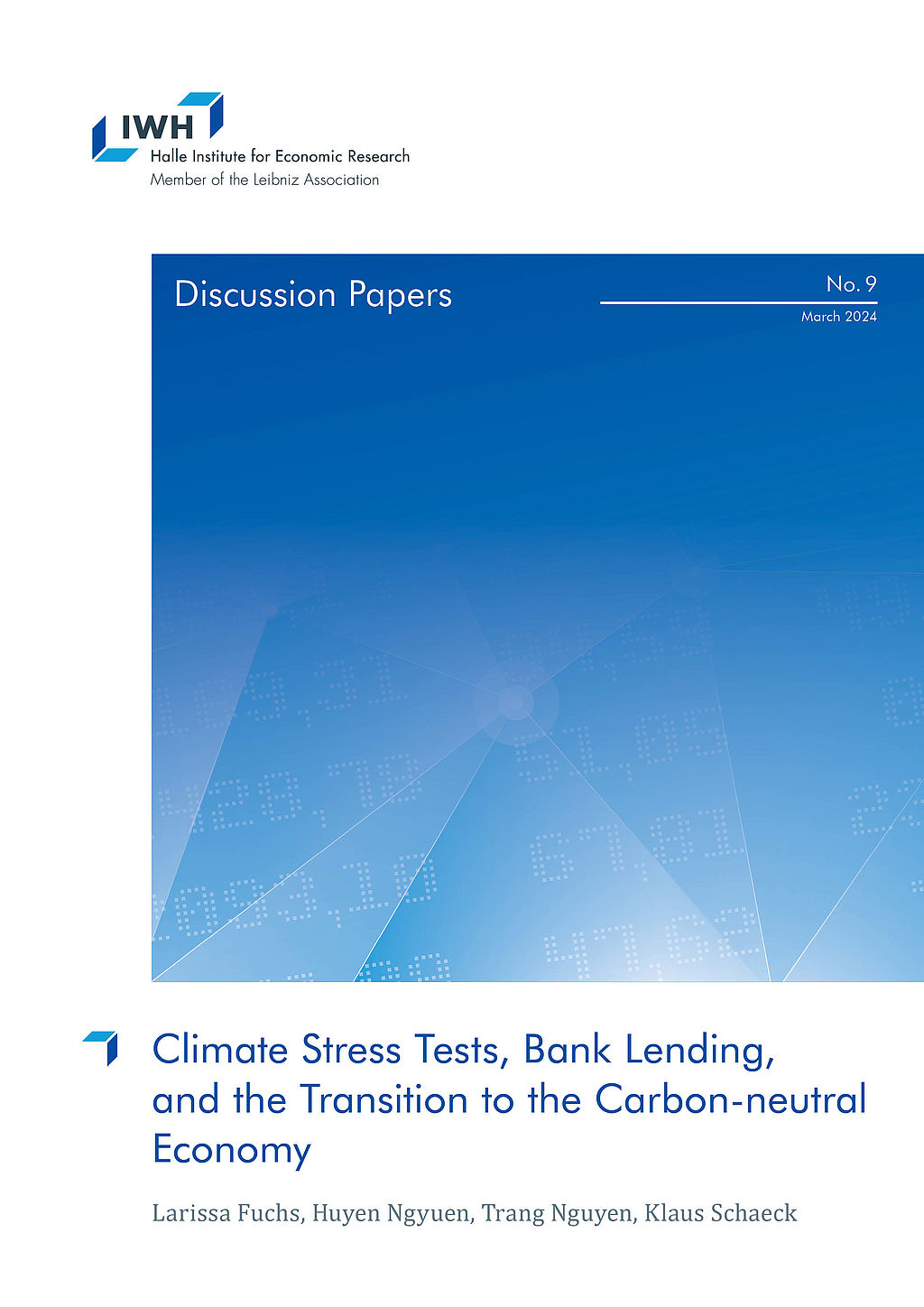
Climate Stress Tests, Bank Lending, and the Transition to the Carbon-neutral Economy
in: IWH Discussion Papers, No. 9, 2024
Abstract
Does banking supervision affect borrowers‘ transition to the carbon-neutral economy? We use a unique identification strategy that combines the French bank climate pilot exercise with borrowers‘ carbon emissions to present two novel findings. First, climate stress tests actively facilitate borrowers‘ transition to a low-carbon economy through a lending channel. Stress-tested banks increase loan volumes but simultaneously charge higher interest rates for brown borrowers. Second, additional lending is associated with some improvements in environmental performance. While borrowers commit more to reduce carbon emissions and are more likely to evaluate environmental effects of their projects, they neither reduce direct carbon emissions, nor terminate relationships with environmentally unfriendly suppliers. Our findings establish a causal link between bank climate stress tests and borrowers‘ reductions in transition risk.

Climate Stress Tests, Bank Lending, and the Transition to the Carbon-Neutral Economy
in: SSRN Working Papers, No. 4427729, 2023
Abstract
Does banking supervision affect borrowers’ transition to the carbon-neutral economy? We use a unique identification strategy that combines the French bank climate pilot exercise with borrowers’ carbon emissions to present two novel findings. First, climate stress tests actively facilitate borrowers’ transition to a low-carbon economy through a lending channel. Stress-tested banks increase loan volumes but simultaneously charge higher interest rates for brown borrowers. Second, additional lending is associated with some improvements in environmental performance. While borrowers commit more to reduce carbon emissions and are more likely to evaluate environmental effects of their projects, they neither reduce direct carbon emissions, nor terminate relationships with environmentally unfriendly suppliers. Our findings establish a causal link between bank climate stress tests and borrowers’ reductions in transition risk.
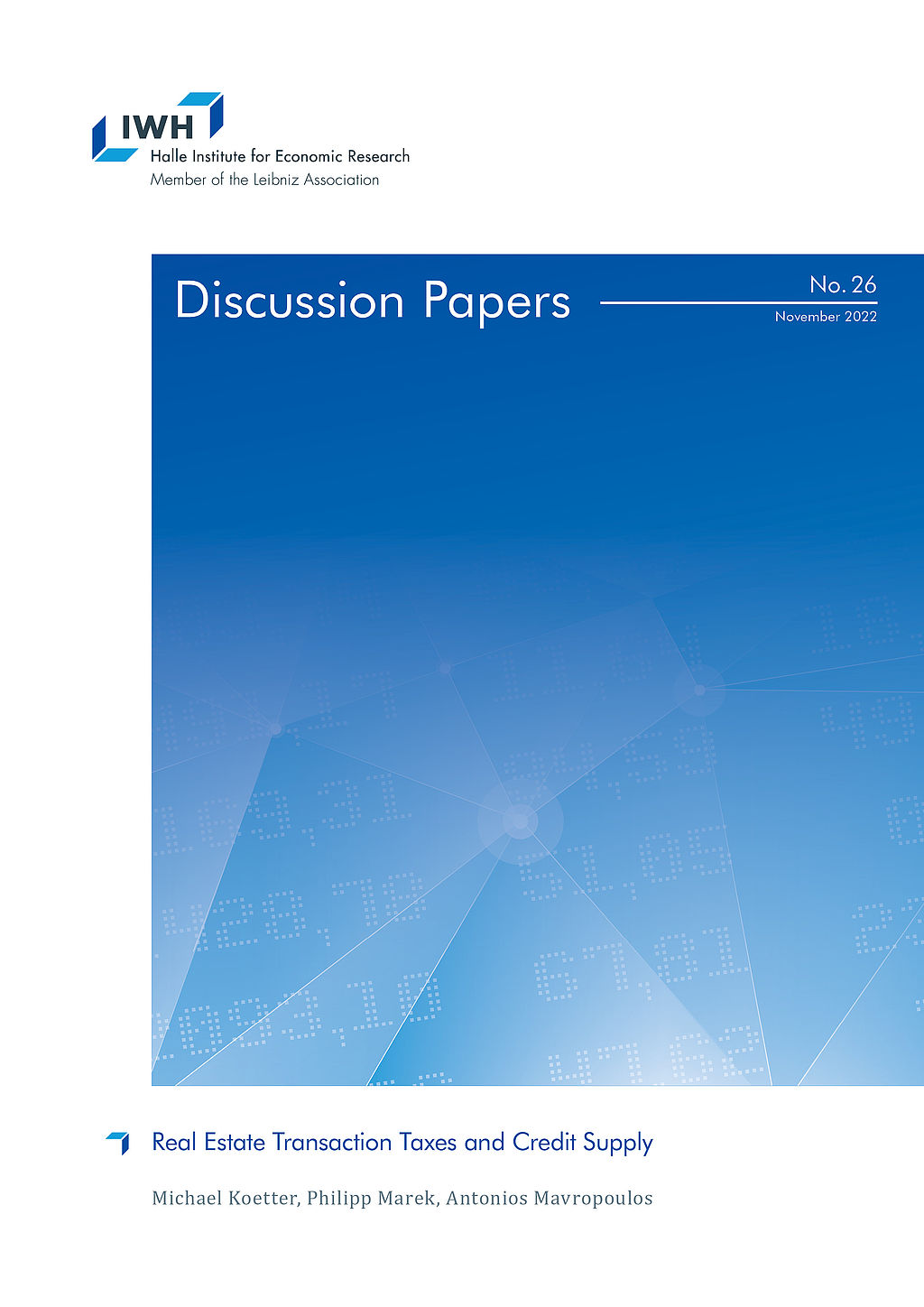
Real Estate Transaction Taxes and Credit Supply
in: IWH Discussion Papers, No. 26, 2022
Abstract
We exploit staggered real estate transaction tax (RETT) hikes across German states to identify the effect of house price changes on mortgage credit supply. Based on approximately 33 million real estate online listings, we construct a quarterly hedonic house price index (HPI) between 2008:q1 and 2017:q4, which we instrument with state-specific RETT changes to isolate the effect on mortgage credit supply by all local German banks. First, a RETT hike by one percentage point reduces HPI by 1.2%. This effect is driven by listings in rural regions. Second, a 1% contraction of HPI induced by an increase in the RETT leads to a 1.4% decline in mortgage lending. This transmission of fiscal policy to mortgage credit supply is effective across almost the entire bank capitalization distribution.
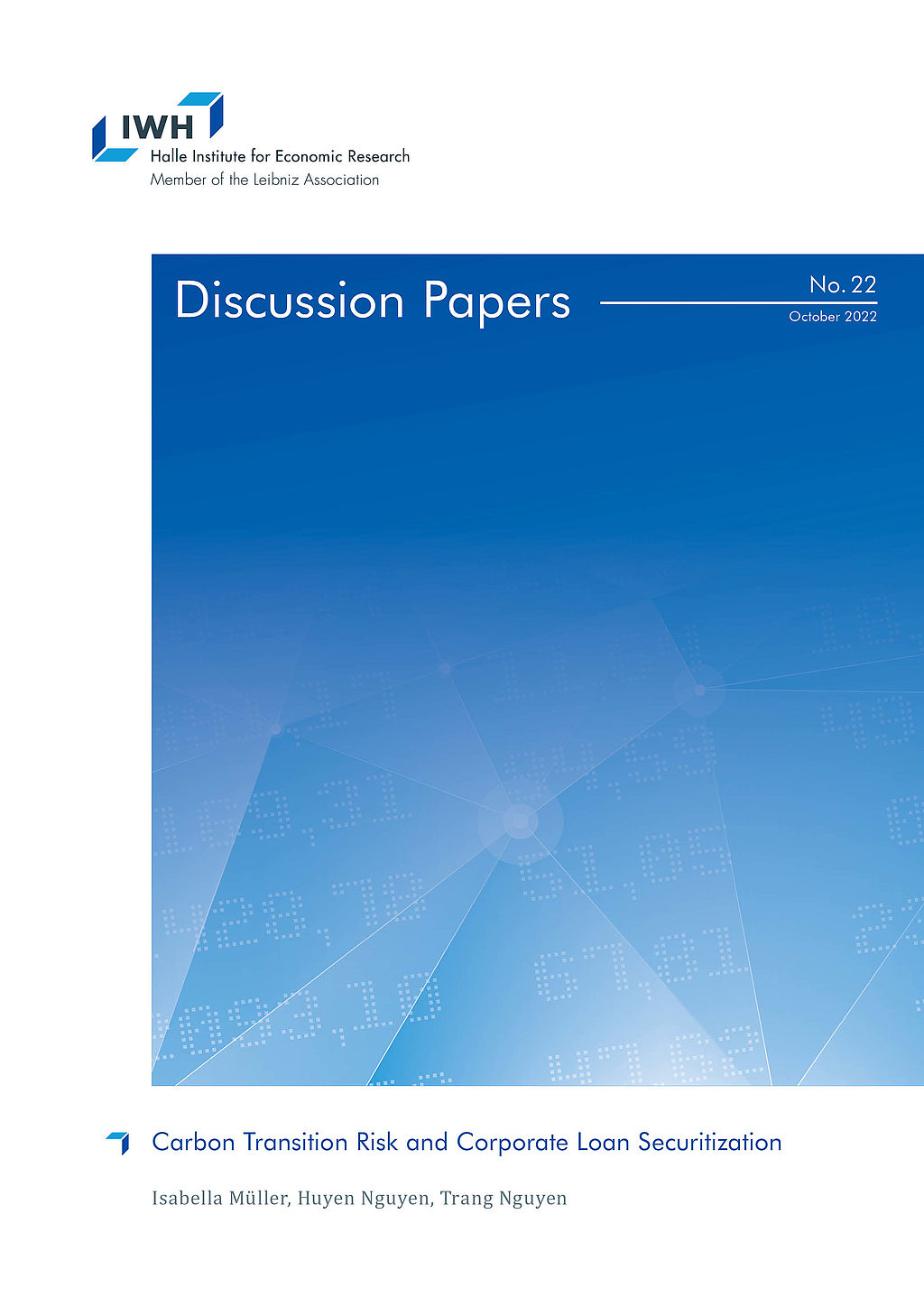
Carbon Transition Risk and Corporate Loan Securitization
in: IWH Discussion Papers, No. 22, 2022
Abstract
We examine how banks manage carbon transition risk by selling loans given to polluting borrowers to less regulated shadow banks in securitization markets. Exploiting the election of Donald Trump as an exogenous shock that reduces carbon risk, we find that banks’ securitization decisions are sensitive to borrowers’ carbon footprints. Banks are more likely to securitize brown loans when carbon risk is high but swiftly change to keep these loans on their balance sheets when carbon risk is reduced after Trump’s election. Importantly, securitization enables banks to offer lower interest rates to polluting borrowers but does not affect the supply of green loans. Our findings are more pronounced among domestic banks and banks that do not display green lending preferences. We discuss how securitization can weaken the effectiveness of bank climate policies through reducing banks’ incentives to price carbon risk.
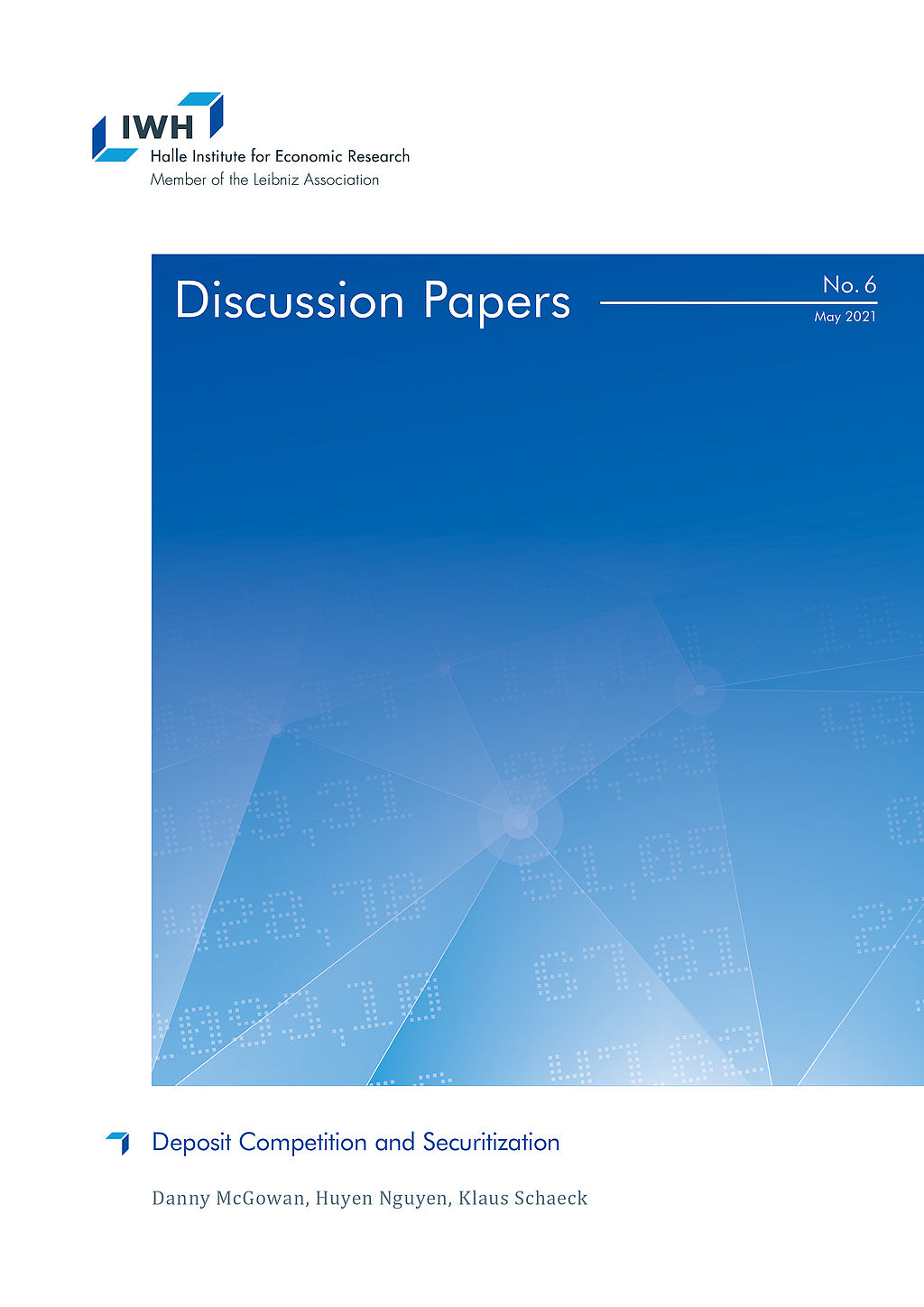
Deposit Competition and Securitization
in: IWH Discussion Papers, No. 6, 2021
Abstract
We provide novel evidence that deposit competition incentivizes banks to securitize loans. Exploiting the state-specific removal of deposit market caps across the U.S. as an exogenous source of competition, we document a 7.1 percentage point increase in the probability that banks securitize their assets. This result is driven by an 11 basis point increase in costs of deposits and a corresponding decrease in banks’ deposit growth. Our results are strongest among small and single state incumbent banks that rely more on deposit funding. These findings highlight an unintended regulatory cause that motivates banks to adopt the originate-to-distribute model.







